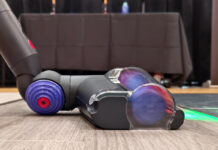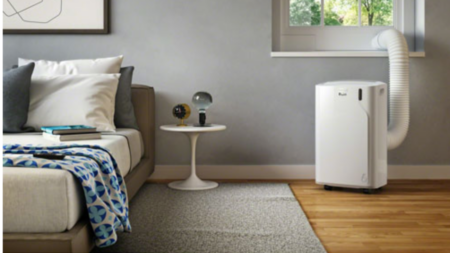
If you have ever heard someone say that the house doesn’t need an air conditioner because “there’s a nice cross breeze,” don’t believe them. I fell into this trap with the previous owners of our home. I learned the hard way the first summer we lived there, which happened to include multiple heat waves. Air conditioning was a necessity. We invested in a portable air conditioner for my son’s room (he was just 3 at the time). We also used fans for the hottest days of the first summer. Before the following summer, we invested in central air conditioning and have never looked back.
If you have central AC in the home, there are plenty of benefits. But as Murphy’s Law would suggest, it’s always on one of the hottest days of the year that there’s an issue. Then, you’re left pulling those old fans out of the attic. Case in point: during a massive heat wave in Toronto this year, my sister’s central air conditioning stopped working and she was left doing just that.
Of course, if there’s an issue, you should always refer to a professional, like an HVAC specialist. But before you call for a site visit, and even after, there are a few things you can do the troubleshoot common central AC issues yourself.
Double check the thermostat
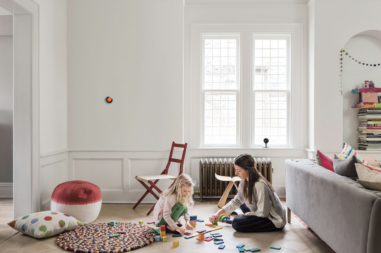
It sounds like a ridiculous suggestion, but if you have ever contacted a tech specialist (like a member of the Geek Squad!) for a tech issue, chances are the first thing you’re told to do is check that something is plugged in. The second is to unplug it, wait 10 seconds, and plug it back in. Double checking your thermostat is the equivalent of that. With smart thermostats growing in popularity, it’s even more likely that simple human error can lead to an issue. It’s as simple as someone tapping the heat button instead of cool. Why is the house so hot? Your 3-year-old might have gotten hold of the tablet and changed the thermostat temp through the smart app without you even realizing it.
Check air vents
Another seemingly obvious thing to consider is the vents. Did you perhaps close it the night before because you were getting cold and completely forget that it was closed? It’s possible the answer is a closed vent that isn’t letting air through. It’s worth noting that while it’s tempting to close a vent when you have too much cold air blowing on you, or because you think it might save money, you should avoid doing this. According to Enercare, closing vents pushes more air through since it isn’t getting out into the room and can put unnecessary pressure on ducts. Bottom line: never close the vents. Either bring a cozy sweater to especially cold rooms, or don’t run the AC as cold. You can also add a fan to especially hot rooms to better circulate the cold air. Nonetheless, double check all the air vents and that they are open before calling a specialist.
Check ducts
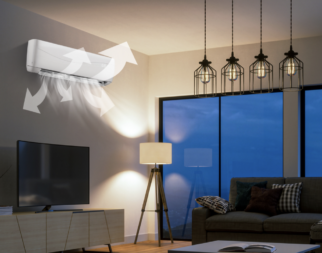
Inefficient central air conditioning could be the result of clogged, dirty ducts, or even ones with mold. If you smell something musty whenever you turn on AC, that could be why. For uneven cooling throughout the home (accounting for the fact that hot air, in general, rises, so upper levels always tend to be hotter), it could also be related to ducts. If this is a persistent issue in your home, it might be worth considering a mini split AC unit instead. These ductless systems don’t rely on the ducts at all. Either way, you should reach out to a duct cleaning specialist to correct the issue and clean out the ducts.
Check the circuit breakers
If something is not working in your home, like a specific appliance or power outlet, the first thing you usually do is check the circuit breakers. Something could have tripped because the circuit was overloaded, or even due to a power surge or outage that caused an issue. Go to the electrical panel for the house and simply turn the breakers on and off again. It’s a simple tip that could be what’s preventing the AC from working. Wait a few minutes and if the fuse still isn’t working, it might need to be replaced. If the fuse is working but the AC is not, you’ll have to continue exploring or call a specialist.
Clean the air filters
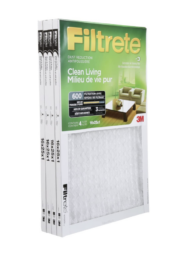
Just like air purifiers, portable air conditioners, vacuums, and other devices that circulate air, central air conditioners require air filters as well. With central AC, however, these are located within the furnace unit, which handles both heating and cooling. Check the air filter and if it’s filled with dirt, debris, pet hair, and dander, change it. A dirty air filter could clog the air and prevent your AC from functioning properly. It’s a good rule of thumb to change your air filter every three months. It might not require changing, but at least give it a quick check before you call a specialist to see why your AC isn’t working.
Refrigerant could be low
It could be low refrigerant that is preventing your AC from working properly. If this is the case, you will need to call a professional. Refrigerant is what removes the heat and humidity from the air. It also makes your air conditioner run efficiently. If there’s not enough, it won’t work. If the issue is that there’s a leak, a specialist will advise if it can be repaired or if you need to replace the AC unit altogether.
Inspect the outdoor condenser unit
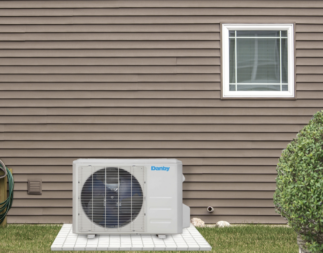
One of the main components of central AC is the outdoor AC unit, called the condenser. And there is some maintenance that it requires. The issue could be caused by things like weeds, dirt, leaves, and other debris building up inside it. Spray it with a hose to remove debris and help it run efficiently. In fact, you should make a point to do this a few times a year, especially after fall if there are trees nearby, particularly overhead. If it’s positioned above grass, make sure to tend to the grass and weeds underneath it as well. Enercare also suggests to keep large objects at least two feet away from the condenser so as not to impede the efficiency.
Keep cool this summer
Air conditioning for some is essential, not only to keep you cool but also to prevent excessive humidity in the home, which can lead to respiratory issues as well as mold and bacteria growth. While central air conditioning is the preferred option for some, you can use plenty other types of air conditioners as a temporary or even permanent solution. These include window ACs, portable ACs, and mini split ACs. Read our handy air conditioners buying guide to learn more about these three main types, how they work, and which would be best for your home.
Once you’re ready to explore further, see plenty of air conditioners at Best Buy Online.

